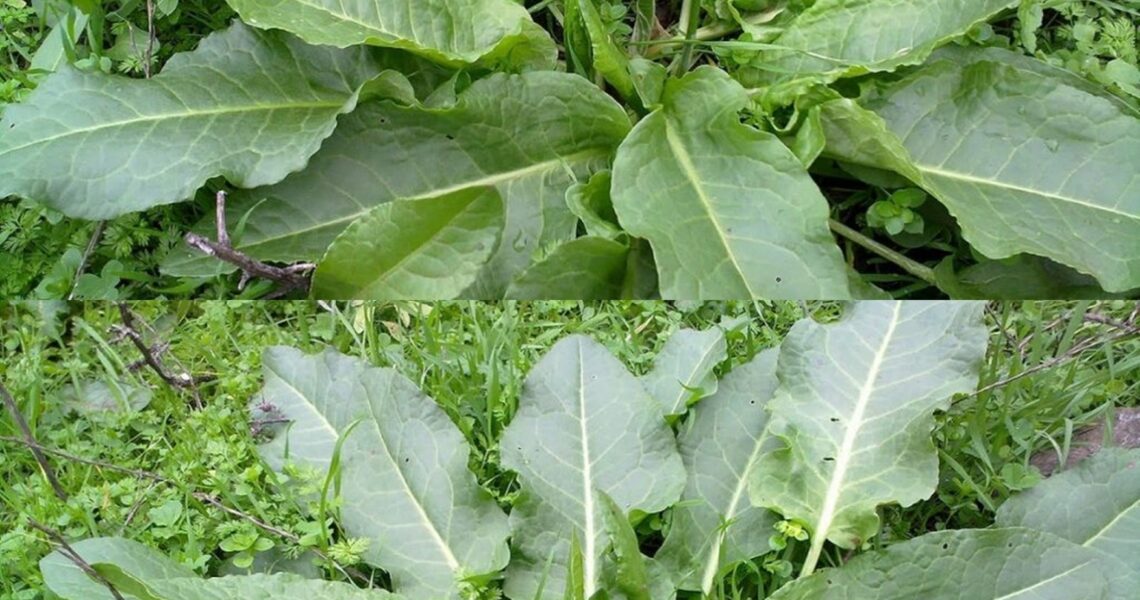The healing properties of lapadh leaves – what do they help with?
We rarely think about the beneficial properties of some of the foods we eat.
Lapad, which is often present on the Bulgarian table in various forms, has many useful properties.
It is a perennial plant known to everyone in Europe.
The season of this plant is spring.
Probably those of you who have put it on the table more than once will confirm for sure that lapada makes great dishes.
The lapad plays the role of a detoxifier
Medicinal properties are hidden in the roots, aerial parts and leaves.
In the body, it plays the role of a detoxifier, mild laxative, tonic, diuretic, astringent and has the function of stimulating bile flow.
About 100-150 species are known, and the most widespread in Bulgaria are: common, broad-leaved, Maykop and Lyon lapad.
Its chemical composition is rich in vitamins A, B1, B2, B3, B6, B9, K, E and C. It contains oil and tanning substances.
It is rich in mineral salts of iron, calcium, potassium, phosphorus and sodium. Contains oxalic, malic and citric acid.
Half a cup of lapad contains about 5 grams of protein, vitamin B2, iron and magnesium, which makes it extremely useful for diets.
Treatment of anemia with lapad
Anemia is a condition of the body in which there is fatigue, a feeling of weakness, a pale appearance of the skin, impaired memory and numbness of the limbs.
It occurs as a result of a lower number of red blood cells and reduced levels of hemoglobin, i.e. of iron and protein in the body.
Deficiency of iron, B vitamins and folic acid can be regulated with the consumption of lapad thanks to its rich chemical composition.
Treatment of lazy bowels with lapad
A lazy bowel is the condition of delayed peristalsis. Lapad juice is used as an additive to various types of herbal mixtures.
It has the property of improving the condition of the inner walls of the intestines, limiting the reabsorption of toxins, improving and purifying the body and stimulating the production of bile.
In small doses, lapad has a caustic effect, and in larger doses, it acts as a laxative.
It can also be taken in the form of a decoction, and the effect occurs 10-12 hours after taking it, but its long-term use is not recommended.
Breast cancer prevention lapad
In our everyday language, the word “cancer” is interpreted as a collection of related diseases and malignant tumor diseases in which cells grow uncontrollably, divide, destroying and displacing healthy tissue.
If diagnosed early, some cancers are curable. Thanks to its ingredients betacarotene, lutein and vitamin A, lapad is a successful preventive measure against breast cancer.
Lapad against diabetes
The disease affects people of all ages and develops mainly against the background of excess weight.
Scientists have proven that lapad, rich in vitamins, potassium, magnesium, phosphorus, citric and malic acid, participates in digestion, prevents obesity and has a beneficial effect on diabetes.
Lapad against obesity
It is used for obesity due to its low caloric content. Contains only 20 calories and 0.64g. fat in 100 g of product.
Its enriched composition of vitamins, mineral salts, oxalic and citric acid make it a favorite vegetable of vegetarians.
Treatment of psoriasis with lapad
The beneficial effect of lapada on indigestion and skin diseases has been clinically studied.
Lapad is useful in the treatment of psoriasis, and for this purpose it is mixed in equal parts of the root of Oregon grape and fennel, dandelion root, sarsaparilla, burdock and lapad. The resulting mixture is smeared on the affected area.
Lapad for a healthy heart and normal blood pressure
The magnesium content in its composition of 89 mg regulates blood pressure, and folic acid limits the risk of cardiovascular damage.
Doctors warn, however, that lapadh poses a health risk for people prone to kidney stones.
If you like the article, you can follow us and share it with your friends:
Source: agronovinite.com
